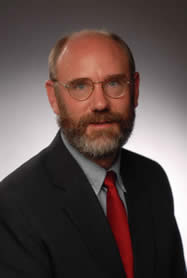 I have occasionally given students a "pop culture" survey that tests their knowledge of movies, music, and TV.
I have occasionally given students a "pop culture" survey that tests their knowledge of movies, music, and TV.
They do scarily well. Some of them remember advertising jingles and silly sitcoms from my childhood. Then I give them a Bible trivia quiz, asking them to identify the daughters of Zelophahad or give the weight of Goliath's armor or identify Jeremiah's birthplace. On that test they typically do, shall we say, less well.
Peter J. LeithartMy punch line is: Earlier generations of Christian students and intellectuals treated the Bible as their "pop culture." Without concordances, much less search engines, they had the whole Bible at their fingertips. I imagine Origen riffing away on snatches of the Bible, just as today's teens and twenty-somethings talk for hours quoting movies or imitating their favorite hip-hop artists.
We shouldn't idealize premodern interpretation of Scripture. We've learned a lot about ancient languages, history, and culture over the past few centuries, and that new information has immeasurably deepened our understanding of the Bible. Yet, as more and more theologians have discovered, patristic and medieval commentators knew things that we have forgotten, much to our detriment.
They knew that biblical hermeneutics was a hermeneutics of the open ear. They trained themselves to be attuned to every inflection of God's voice, to ponder the slightest twist of phrase, to hear every reverberation and overtone of Scripture's music. A single verse of the Psalms could lead Augustine through the prophets to the gospels and epistles, with a side tour of the Song of Songs along the way.
They were as saturated in Scripture as we are in entertainment and advertisements. They read the Bible, of course, but because they studied Scripture in the liturgical setting of a church or monastery, they also heard the Bible, over and over. Monks sang through the Psalter each week. Spend a lifetime doing that, and you'd have the Bible on the tip of your tongue, too.
Just as important, they knew that technique and mastery of content don't make a good interpreter. Only the good can be good teachers; only the obedient can hear. In this sense, too, premodern hermeneutics was a hermeneutics of the open ear. Eyes are organs of judgment, and therefore organs of mastery. As we scan a text, we subject it to our gaze. Ears are the organs of obedience. Eyes put us in positions of authority. But when we open our ears, we concede authority to the speaker. It's significant that patristic and medieval students didn't confine themselves to looking at the page. They heard the word, and so exercised the sense of humility, subjection, and service.
According to the book of Exodus, a slave who loves his master and decides to remain with him marks his status by having his earlobe bored with an awl at a doorway. After that, his ear is forever open to the master's voice. This institution becomes a metaphor of the consecrated life. Psalm 40 dismisses the sacrifices of the temple and teaches that God is pleased with the sacrifice of the open ear, the offering of prompt and heartfelt obedience. The same symbolism is taken up in the rite of priestly ordination, in which blood was smeared on the priest's earlobe. Priests are permanent household servants to Yahweh, their ears bored open to signify obedience to their divine master.
By "obedient" I don't mean only an appropriate response to commands. A hermeneutics of the open ear reacts rightly to the full range of God's speech acts. The seventeenth-century Westminster Confession of Faith captures this brilliantly when it says that "a Christian believes to be true whatsoever is revealed in the Word, for the authority of God himself speaking therein," and immediately adds that a believer responds differently to the Bible's different ways of communicating: He or she obeys God's commands, trembles at God's threats, rejoices in God's promises, believes God's assertions. His ears are open so he can sing along when God plays a tune.
Above all, premodern interpreters knew that both good reading and good living are gifts from God. Again and again, Israel closes herself to God's word. Isaiah preaches to the deaf and dull of heart, and Jeremiah's audience closes its ears to his stern message of doom. Jesus, the last prophet, hears and does his Father's will, and he spends his days making priests. With a touch, he loosens tongues to sing his praise. By the finger of his Spirit, he bores into our ears so the Father's word can enter and capture our hearts.
Peter J. Leithart is President of Trinity House, a study center in Birmingham, Alabama, and an adjunct Senior Fellow at New St. Andrews College, Moscow, Idaho. His most recent book is Between Babel and Beast: America and Empires in Biblical Perspective. His previous "On the Square" articles can be found here.





















